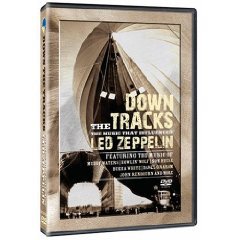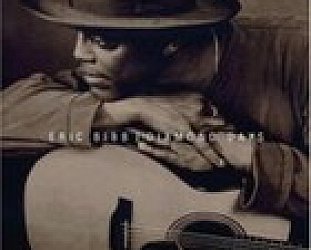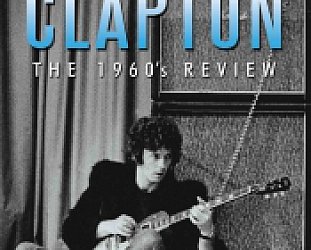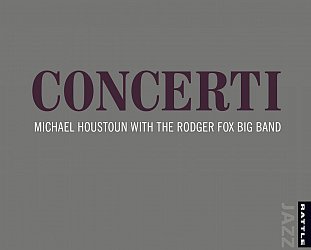Graham Reid | | 1 min read
Led Zeppelin: Gallow's Pole

My dad had a witty but true observation of the New Zealand whisky 45 South: "Don't think of it as a whisky and it's a quite acceptable drink."
The same might be said of this doco in which neither Led Zeppelin nor their music appears: don't think of it as about Led Zeppelin and its quite an acceptable documentary.
One of the cliches of contemporary music -- perpetrated in large measure by classic hits radio's limited world view -- is that Led Zeppelin were a riff-heavy heavy rock outfit. They were, but they were always much more and their on albums, right from their debut on acoustic tracks such as Black Mountain Side, they incorproate elements of folk alongside crunching blues. As Time magazine observed when Led Zeppelin III topped the US charts, the reason Led Zeppelin managed to evolve and remain successful was because of their aim "to explore all the style and techniques of today's rock spectrum without ever losing a heavy core of raw feeling".
Much of that raw feeling steemed from Jimmy Page and Robert Plant's love of the blues: the rural blues of Robert Johnson, the tough Chicago blues of Howlin' Wolf. But there was more: the influence of Anglofolk stars such as Bert Jansch, John Renbourn and the late Davy Graham was in the mix along with influences from Morocco and the Middle East (some courtesy of the tunings used by Graham) as well as a mix of Indian raga.
This doco full of journalists and others -- Charles Shaar Murray, producer Joe Boyd, Renbourn and more -- speaking about Led Zeppelin's myriad influences is kneecapped by having no Led Zepp music being used to illustrate the points.
But what it does have are potted histories of blues legends such as Charley Patton, Robert Johnson, Son House, Bukka White and others, a look at the impact of Elvis and his band (notably guitarist Scotty Moore on the young Page) and a look at the important period of skiffle and its now forgotten stars. At one point there were an estimated 30,000 skiffle bands in Britain in the years before bands plugged in.
With archive footage (although not alwys archive music) this makes for interesting viewing, even if some of the talking heads sound a bit laboured and you yearn to hear the Led Zeppelin or blues music being discussed.
There are now innumerable CDs along such lines -- Bob Dylan's Jukebox among the most recent -- but a DVD with footage of Chicago, rural black poverty, Howlin' Wolf, juke joints in Mississippi and the skiffle years certainly ups the game.
Just don't think of it as a doco about Led Zeppelin and it is quite acceptable.







dave - Mar 23, 2009
anyone who loves music, just listen; its communication on the very best dimension,and
Savealthough you may not get your questions answered, you'll always have friends
post a comment